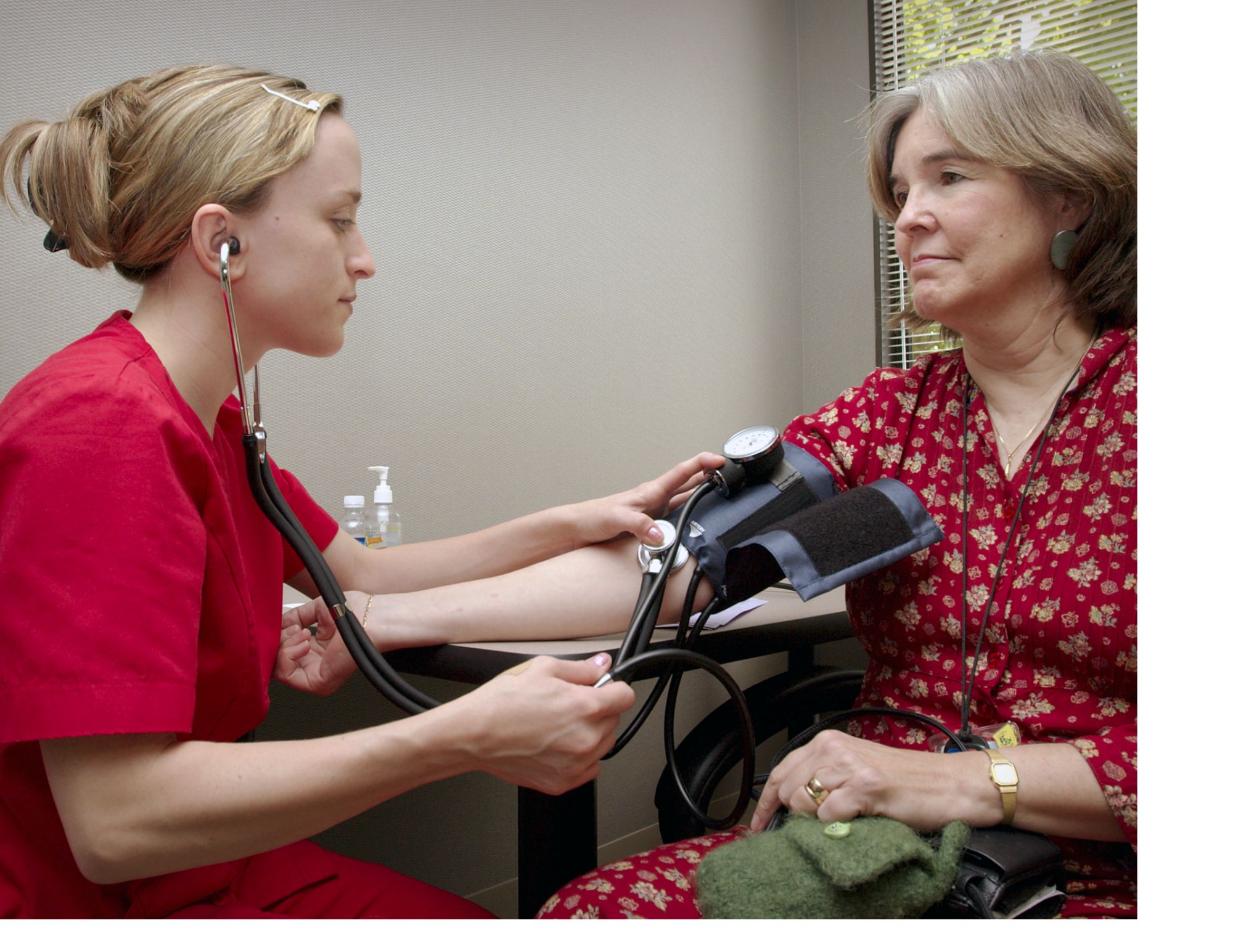Certified Clinical Medical Assistant (CCMA) – (Voucher Included) – (VIRTUAL) – Course # TBA
$4,000.00
| Total Hours | 540 |
|---|---|
| Days | Self Paced Learning |
| Start Date | Rolling Enrollment |
| Duration of Program Access | 12 Months |
Course Description
You will learn the professional traits and responsibilities to become a vital part of the healthcare team in a medical office, clinic, hospital, and other healthcare settings. You will also be prepared for the Certified Clinical Medical Assistant (CCMA) exam.
Overview
Clinical medical assistants are skilled multitaskers who help maximize the healthcare team's productivity. Medical assistants enable a healthcare facility to operate more efficiently, which increases revenue and provides a positive experience for patients. For physicians, clinical medical assistants help manage the increasing complexities of practice management and patient care. According to the U.S. Bureau of Labor Statistics, the job market for medical assistants will grow 16% through 2031, which is much faster than the average job.
In this online medical assistant certification course, you will learn a broad range of skills that make medical assistants versatile and valuable, including medical terminology, medical law and ethics, HIPAA rules, scheduling systems, and the importance of certified clinical medical assistants as healthcare team members. You will also be prepared to perform duties from the front office to the back office. These duties include measuring vital signs, assisting with exams, performing laboratory testing, maintaining equipment and supplies, administering injections, obtaining blood specimens, scheduling appointments, registering patients, and answering and returning phone calls.
The medical terminology course introduces key concepts of medical language and human anatomy, emphasizing the interconnectedness of body systems in health and disease. The curriculum covers topics such as the musculoskeletal, cardiovascular, respiratory, nervous, and immune systems, along with mental health and special senses, with exams at the midterm and final stages. Students with prior knowledge can optionally test out by achieving a minimum score of 80%, replacing course content if desired. It is important to understand that this course feature only applies to the online Medical Terminology course, the standalone course, or advanced career training course bundles that include Medical Terminology.
The online medical assistant certification course also includes the opportunity to become CPR certified and participate in an unpaid clinical experience. Because employers recognize that certified medical assistants deliver greater value, completing the course will help you to be well-prepared to find your place in this rewarding healthcare career. You will also be able to sit for the Certified Clinical Medical Assistant (CCMA) exam through the National Healthcareer Association (NHA).
This CCMA certification course includes a voucher covering the certification exam fee. However, please research your state's requirements by visiting your state's medical board site before enrolling to ensure this course is the right fit for you.
Outline
-
Outline
- Medical Terminology
- Getting Started
- How to Take This Course
- Test-Out Exam 1: Lessons 1–Midterm Exam
- Introduction to Medical Terminology and the Human Body in Health and Disease
- The Musculoskeletal System
- The Cardiovascular System
- The Lymphatic and Immune Systems
- The Respiratory System
- The Digestive System
- The Urinary System
- Midterm
- Test-Out Exam 2: Lessons 8–Final Exam
- The Nervous System
- Special Senses: The Eyes and Ears
- The Integumentary System
- The Endocrine System
- Mental Health
- Male and Female Reproductive Systems
- Diagnostic Procedures, Nuclear Medicine, and Complementary Medicine
- Final Exam
- Medical Terminology
- Certified Clinical Medical Assistant
-
-
- Medical Assisting Foundations
- Professional Behavior
- Legal and Ethical Issues
- The Art of Communicating
- Telecommunications, Telephone Professionalism, and Telephone Techniques
- Written Communications
- Medical Office Environment
- Patient Scheduling
- Managing Medical Records
- Introduction to Health Insurance
- Medical Coding: An Overview
- Patient Accounts
- Insurance Claims, Patient Billing, and Collections
- Daily Financial Practices
- Managing the Office
- Pharmacology
- Pathophysiology
- Infection Control and Medical Asepsis
- The Chief Complaint and Patient History
- Body Measurements and Vital Signs
- Preparing for Examinations
- The Complete Physical Examination (CPE)
- Specialty Examinations and Procedures
- The Physician's Office Laboratory (POL)
- Specimen Collection and Processing
- Introduction to Phlebotomy
- Diagnostic Testing
- Minor Office Surgeries
- Medication Dosage Calculations
- Administering Medications
- Emergencies in the Medical Office
- First Aid Procedures and Mental Health Issues
- Rehabilitation
- Nutrition and Special Diets
- Certification
- Preparing for Your Career
-
Hardware
Hardware Requirements:
- This course can be taken on either a PC, Mac, or Chromebook.
Software Requirements:
- PC: Windows 8 or later.
- Mac: macOS 10.6 or later.
- Browser: The latest version of Google Chrome or Mozilla Firefox is preferred. Microsoft Edge and Safari are also compatible.
- Microsoft Word Online
- Adobe Acrobat Reader
- Software must be installed and fully operational before the course begins.
Other:
- Email capabilities and access to a personal email account.
Instructional Material Requirements:
The instructional materials required for this course are included in enrollment.
The following digital textbook for the Medical Terminology course is accessed via links in the course lessons:
- Comprehensive Medical Terminology for Health Professions, 1st Edition (eBook)
The following textbooks will be shipped to you approximately 7-10 business days after enrollment in the CCMA course:
- Medical Assisting: Administrative & Clinical Competencies, by Michelle Blesi
- Workbook to Accompany Medical Assisting: Administrative & Clinical Competencies, by Michelle Blesi
Please note: You will receive a digital book if the physical book is on backorder.
Prerequisites
Prerequisites:
High school diploma or equivalent required.
Certification Requirements:
In order to sit for the national certification exam, candidates must have a high school diploma or equivalent.
While you'll learn everything you need to know to pass the Certified Clinical Medical Assistant (CCMA) national certification exam offered by National Healthcareer Association (NHA), you'll still need to ensure that the Certified Clinical Medical Assistant course will meet your state's requirements. Please visit your state's Medical Board site for more information.
Course Objectives
What you will learn
- You will learn the necessary skills to function as a vital member of the healthcare team in an ambulatory setting
- The course will emphasize ethical behavior, therapeutic communication, protecting the privacy of patient information, the importance of a first impression, maintaining a safe office environment, medical terminology, and clinical procedures.
- Identify the professional traits that a medical assistant must possess
- Discuss the various administrative and clinical job duties of a medical assistant
- Recognize the importance of professional certification
How you will benefit
- Summarize the HIPAA Privacy Rule and HIPAA Security Rule
- Demonstrate basic medical terminology knowledge
- Discuss government and private insurance
- Identify the functions of the major body systems
- Demonstrate how to write a chief complaint and obtain a patient history
- Discuss the importance of medical and surgical asepsis
- Explain the information contained in different types of medical records.
- Identify the three methods used to perform venipuncture
- Professionalism represents the types of behavior that demonstrate your moral, ethical, and respectful attributes when interacting with patients and coworkers
- The medical assistant has a critical role in the ambulatory care setting, performing both administrative and clinical tasks under the direction of the provider
- An increasing number of employers now require that their medical assistants be certified. Certification shows that the medical assistant has met certain educational requirements and has committed to continuing their education going forward
Certified Clinical Medical Assistant FAQs
What is a medical assistant?
According to the National Healthcareer Association (NHA), Medical assistants are critical members of the healthcare team and can be found in a variety of medical settings. As a Medical Assistant, you are often the first and last person a patient interacts with, making a lasting impact on the patient's experience. Medical Assistants are flexible, performing a variety of both clinical and administrative tasks.
What do medical assistants do?
You will be responsible for taking the medical histories and recording patients' vital signs. Exact duties will vary by location, healthcare specialty, and practice size, but you will also likely complete clerical and administrative tasks within physician's offices, hospitals, and other healthcare facilities. You will also need to understand how and what information can be shared and adhere to confidentiality laws, like HIPAA, in patient treatment.
Duties can include administrative and clinical tasks such as the following:
- Taking medical histories
- Explaining treatment procedures to patients
- Preparing patients for examinations
- Assisting the physician during examinations
- Collecting and preparing laboratory specimens
- Performing basic laboratory tests
- Instructing patients about medication and special diets
- Preparing and administering medications, including by intramuscular, intradermal, and subcutaneous injections—including vaccinations/immunizations, as directed by a physician or other licensed provider (e.g., a nurse practitioner or physician assistant)
- Transmitting prescription refills as directed
- Phlebotomy
- Taking electrocardiograms
- Wound care and changing dressings
- Using computer applications
- Answering telephones
- Welcoming patients
- Updating and filing patient medical records
- Coding and filling out insurance forms
- Scheduling appointments
- Arranging for hospital admissions and laboratory services
- Handling correspondence, billing, and bookkeeping
Are clinical medical assistants in high demand?
The demand for medical assistants is high, making it an excellent time for students to begin their career training. The U.S. Bureau of Labor Statistics (BLS) projects that demand will increase by 18% over the next ten years for this profession, much faster than the average for all occupations in the U.S.
What is the Certified Clinical Medical Assistant (CCMA) Exam?
The Certified Clinical Medical Assistant (CCMA) is a national certification exam offered by the National Healthcareer Association (NHA), the largest allied health certification organization in the U.S., with over one million certifications awarded over more than 30 years. This exam serves to validate the skills of medical assistants and demonstrates their dedication to the profession. According to the 2020 Industry Outlook produced by the NHA, 89% of employers require or encourage certification for medical assistants, and 63% increase pay when certification is obtained. This course includes a voucher for the cost of the CCMA certification exam at no additional cost to you.
What are the system requirements for the online certification exam proctoring?
System requirements for NHA certification exam proctoring are:
- Operating system supported: Windows 7 and later; 32bit (x86) and 64bit (x64); macOS and later
- Browsers supported: PSI Secure Lock-Down Browser
- Browser settings: The browser must accept third-party cookies for the duration of the exam ONLY
- Webcam/microphone: Minimum VGA 640 x 480 resolution, enabled built-in or external microphone
- Bandwidth: Minimum 400 kb/s download and upload
- Hardware requirements: 2GB RAM Memory; 1 GB free disk space, minimum 1368x768 screen resolution
You can check the compatibility of your device at: https://home.psiexams.com/static/#/bcheck
Does this course prepare you for a certification?
Yes. After successfully completing the course, you will be able to take the Certified Clinical Medical Assistant (CCMA) national certification exam offered by National Healthcareer Association (NHA). The registration fee for the exam is included with this course.
What kind of support will I receive?
Our courses are designed to accommodate various learning preferences. Depending on the course structure, you may get different forms of support. Self-paced courses are designed to be user-friendly and independent, minimizing the need for external support. In courses with instructors, our direct platform support feature includes opportunities for questions, discussions, and remediation, with email and phone support available for select courses. Our student advising team is available to guide you on program requirements and administrative requests, but they do not provide assistance with course content. Our goal is to provide you with the necessary support for success, whether it's through self-paced exploration, direct communication, or guidance from our advising team.
What happens when I complete the course?
Upon successfully passing the final exam, you will be awarded a certificate of completion from the school or organization that you registered through.

